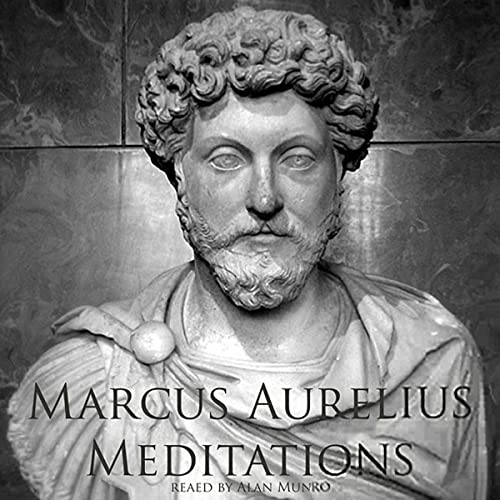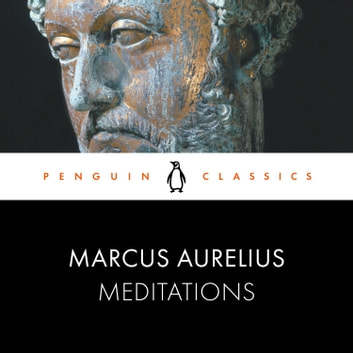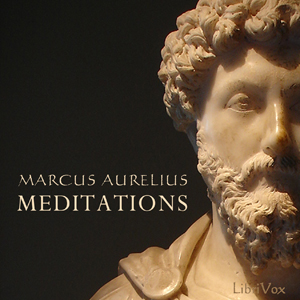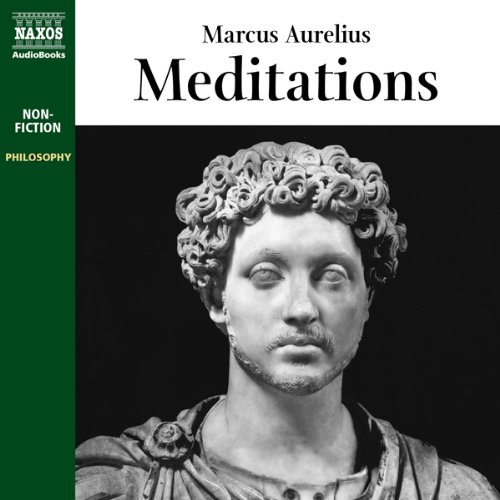Marcus Aurelius’ “Meditations” is a collection of personal writings on Stoic philosophy. The audiobook brings these timeless reflections to life.
“Meditations” by Marcus Aurelius offers profound insights into Stoic philosophy. Written as personal notes, the text explores themes of virtue, reason, and self-discipline. The audiobook format provides an engaging way to absorb Aurelius’ wisdom, making it accessible to modern listeners.
These reflections, penned during his reign as Roman Emperor, remain relevant today. They guide readers on how to lead a fulfilling life through inner peace and resilience. The audiobook enhances the experience, allowing for deeper connection and understanding. Whether you seek personal growth or philosophical enrichment, “Meditations” is a valuable resource.
Introduction To ‘meditations’
Marcus Aurelius was a Roman Emperor and a Stoic philosopher. His work, ‘Meditations’, is a series of personal writings. These writings offer insights into his mind and soul. The Meditations Audiobook brings his wisdom to life. Listening to it is like having a mentor by your side. Let’s explore the life and philosophy of Marcus Aurelius.
The Life Of Marcus Aurelius
Marcus Aurelius was born in 121 AD in Rome. He became emperor in 161 AD. He ruled for 19 years. He was known for his wisdom and virtue. Unlike other emperors, he was more interested in philosophy. He wrote his thoughts in a journal, which became ‘Meditations’.
Marcus Aurelius faced many challenges. There were wars, plagues, and personal losses. Despite these, he stayed strong. His writings reflect his struggles and his resilience. His life is an example of how to face adversity with grace.
The Philosophy Of Stoicism
Stoicism is a philosophy that teaches self-control and rational thinking. It helps people handle stress and hardship. Marcus Aurelius was a Stoic. His ‘Meditations’ are filled with Stoic principles.
Stoicism teaches that we cannot control external events. We can only control our reactions. It values wisdom, courage, and justice. Marcus Aurelius applied these principles in his life and writings.
Here are some key Stoic ideas:
- Focus on what you can control: Accept what you cannot change.
- Live in harmony with nature: Align your actions with reason and virtue.
- Practice mindfulness: Be present and aware of your thoughts and actions.
The Meditations Audiobook is a great way to learn about Stoicism. It offers practical advice for daily life. Listening to it can bring calm and clarity. It’s like having a wise friend guiding you.

The Genesis Of ‘meditations’
Marcus Aurelius, a Roman Emperor, wrote ‘Meditations’ during his reign. This collection of personal writings offers deep insights into his thoughts. The book remains a cornerstone of Stoic philosophy.
Historical Context
Marcus Aurelius ruled Rome from 161 to 180 AD. His reign was marked by wars, plagues, and political unrest. Despite these challenges, Marcus focused on self-improvement and philosophical contemplation.
He wrote ‘Meditations’ during military campaigns. These writings helped him cope with the difficulties he faced. The historical backdrop adds depth to his reflections.
Purpose Behind The Writings
‘Meditations’ served as a personal journal for Marcus Aurelius. He did not intend for it to be published. The writings were a way for him to practice and reinforce Stoic principles.
Marcus aimed to better understand himself and the world. He wrote to cultivate inner peace and resilience. His reflections offer timeless wisdom on living a virtuous life.
Each entry reveals his quest for self-mastery and moral clarity. The book encourages readers to focus on what they can control. It teaches the importance of accepting what they cannot change.
Key Themes In ‘meditations’
Marcus Aurelius’ Meditations is a timeless piece of literature. It provides deep insights into life and human nature. This audiobook presents these themes effectively. Let’s delve into some of the key themes.
The Nature Of Reality
Marcus Aurelius emphasizes the impermanence of life. Everything changes and nothing lasts forever. Understanding this can help one remain calm in the face of adversity.
He also discusses the interconnectedness of all things. Every event is part of a larger, interconnected web. This helps us see the bigger picture.
| Aspect | Explanation |
|---|---|
| Impermanence | All things are temporary and constantly changing. |
| Interconnectedness | Events and actions are part of a larger whole. |
The Discipline Of Desire
Aurelius teaches the importance of self-control. Desires can lead us astray if unchecked. Practicing discipline helps us make better choices.
He advises focusing on what is within our control. External factors are beyond our influence. This empowers us to remain steadfast.
- Self-control: Manage desires to avoid straying from the path.
- Control: Focus on what you can influence.
The Importance Of Rationality
Rationality is a central theme in Meditations. Marcus emphasizes the need for clear thinking. Rational thought helps us navigate life’s challenges effectively.
He encourages the use of reason over emotion. Emotions can cloud judgment. Rational thinking ensures decisions are sound and just.
- Clear Thinking: Approach problems with a rational mind.
- Reason over Emotion: Let reason guide your decisions.
The Structure Of The Audiobook
Marcus Aurelius’ Meditations is a timeless work. The audiobook offers a structured experience for listeners. It helps them to absorb the wisdom of this ancient text.
Division Into Books
The audiobook is divided into twelve books. Each book reflects different stages of Marcus Aurelius’ life. This structure allows listeners to follow his philosophical journey. It provides context and depth to his meditations.
| Book Number | Focus |
|---|---|
| Book 1 | Gratitude and Influences |
| Book 2 | Self-Examination |
| Book 3 | Life’s Transience |
| Book 4 | Inner Peace |
| Book 5 | Mindfulness |
| Book 6 | Nature’s Order |
| Book 7 | Human Behavior |
| Book 8 | Ethics |
| Book 9 | Universal Harmony |
| Book 10 | Acceptance |
| Book 11 | Virtue |
| Book 12 | Final Reflections |
Narrative Style And Voice
The audiobook uses a calm and reflective narrative style. The voice is soothing, making it easy to listen to. Each sentence is clear and concise. This enhances understanding and retention.
The narrator’s voice captures the essence of Marcus Aurelius’ thoughts. It conveys the deep wisdom of his words. This combination of style and voice makes the audiobook engaging.
- Clarity: The narration is easy to follow.
- Emotion: The voice conveys the emotions behind the words.
- Consistency: The tone remains steady throughout.
Influences On Modern Thought
Marcus Aurelius’ Meditations is a cornerstone of Stoic philosophy. This ancient text has greatly influenced modern thought. Its teachings resonate deeply in today’s world. Let’s explore its impact on modern psychology and contemporary life.
Impact On Modern Psychology
Marcus Aurelius‘ ideas offer valuable insights into modern psychology. His focus on self-awareness and emotional control aligns with cognitive-behavioral therapy. This approach helps people manage their thoughts and feelings. It also improves mental health.
Modern psychologists often use Stoic principles. These principles help individuals deal with stress and anxiety. The Meditations audiobook brings these lessons to a wider audience. It makes Stoic wisdom accessible to many people.
Stoicism In Contemporary Life
Stoicism is not just for philosophers. Its teachings apply to daily life. Many people use Stoic practices to improve their well-being. They find peace through acceptance and mindfulness.
- Acceptance: Understanding what you can and cannot control.
- Mindfulness: Being present in the moment.
- Resilience: Bouncing back from setbacks.
The Meditations audiobook offers a practical guide. It helps listeners incorporate Stoic principles into their lives. This makes it easier to face challenges with a calm mind.
| Stoic Principle | Modern Application |
|---|---|
| Acceptance | Improves mental resilience |
| Mindfulness | Reduces stress and anxiety |
| Resilience | Enhances emotional control |
Listening to the Meditations audiobook can transform your outlook. It connects ancient wisdom with modern needs. This makes it a valuable resource for personal growth.

Challenges In Translating ‘meditations’
Translating Marcus Aurelius’ Meditations presents unique challenges. The original text, written in ancient Greek, has deep philosophical meanings. Translators must convey these meanings accurately. This task is complex due to language differences and cultural contexts. Below, we explore these challenges in detail.
Language And Interpretation
The ancient Greek language is rich and complex. Words often have multiple meanings. Translators must choose the correct meaning for each context. Some Greek words have no direct English equivalent. This makes translation difficult.
Also, the structure of ancient Greek sentences is different. Translators must rearrange words to make sense in English. They must also preserve the original tone and style. This balance is hard to achieve.
Conveying Stoic Philosophy
Marcus Aurelius’ Meditations is a key text in Stoic philosophy. Translators must understand Stoic concepts deeply. They need to convey these concepts clearly in English. This involves more than just translating words. It requires interpreting and explaining complex ideas.
For example, the Greek word “logos” has many meanings. In Stoicism, it often refers to the rational principle that governs the universe. Translators must convey this meaning accurately. They must also make it understandable to modern readers.
| Greek Term | Possible Meanings | Contextual Meaning in ‘Meditations’ |
|---|---|---|
| Logos | Word, Reason, Principle | Rational Principle |
| Eudaimonia | Happiness, Welfare, Flourishing | Human Flourishing |
Translating Stoic philosophy also involves understanding ancient cultural contexts. Some ideas in Meditations may seem foreign to modern readers. Translators must bridge this gap. They need to provide explanations without altering the original meaning.
Listening To ‘meditations’: A Guide
Marcus Aurelius’ “Meditations” is a timeless piece of literature. Listening to this audiobook can be a transformative experience. This guide will help you get the most out of this philosophical work.
Preparing The Mind
Preparing your mind is the first step. Find a quiet space. Ensure you won’t be disturbed. This helps focus and absorption.
Relax and breathe deeply. Clear your thoughts. A calm mind is more receptive. Make sure you are comfortable. This can be on a chair, bed, or even a cushion.
Set an intention. Decide what you want to learn. This keeps you engaged. Having a purpose enhances your listening experience.
Reflective Listening Practices
Reflective listening means actively engaging. Take notes on key points. This helps retention and understanding. Pause the audiobook if needed.
Ask yourself questions. How does this relate to your life? What can you learn? This deepens your connection to the material.
Discuss with others. Share your insights. A group discussion can offer new perspectives. This makes the experience richer and more meaningful.
| Step | Action |
|---|---|
| 1 | Find a quiet space |
| 2 | Relax and breathe deeply |
| 3 | Set an intention |
| 4 | Take notes on key points |
| 5 | Ask yourself questions |
| 6 | Discuss with others |
These practices will enhance your experience. Marcus Aurelius’ wisdom will become more impactful. Enjoy your journey through “Meditations”.

Beyond The Audiobook
Listening to Marcus Aurelius’ Meditations audiobook is just the beginning. Dive deeper into the world of Stoicism and discover how Marcus Aurelius has influenced popular culture. This section will guide you through further reading and his presence in modern media.
Further Reading On Stoicism
For those inspired by the Meditations, there are several books that expand on Stoic philosophy:
- The Enchiridion by Epictetus
- Letters from a Stoic by Seneca
- A Guide to the Good Life by William B. Irvine
These texts provide different perspectives on Stoic teachings. They help deepen your understanding of this ancient philosophy.
Marcus Aurelius In Popular Culture
Marcus Aurelius’ influence extends beyond books. He appears in various forms of popular culture:
| Medium | Example |
|---|---|
| Movies | Gladiator (2000) |
| TV Shows | Rome (2005-2007) |
| Books | The Emperor’s Handbook by David and Scot Hicks |
These examples highlight his lasting impact and relevance today. Marcus Aurelius continues to inspire modern storytellers and audiences alike.
Conclusion
Discover the timeless wisdom of Marcus Aurelius through the “Meditations” audiobook. This classic offers profound insights for personal growth and resilience. Listening to his teachings can inspire mindfulness and inner peace. Embrace the ancient wisdom and transform your daily life with this powerful audiobook.
Start your journey to a better you today.



